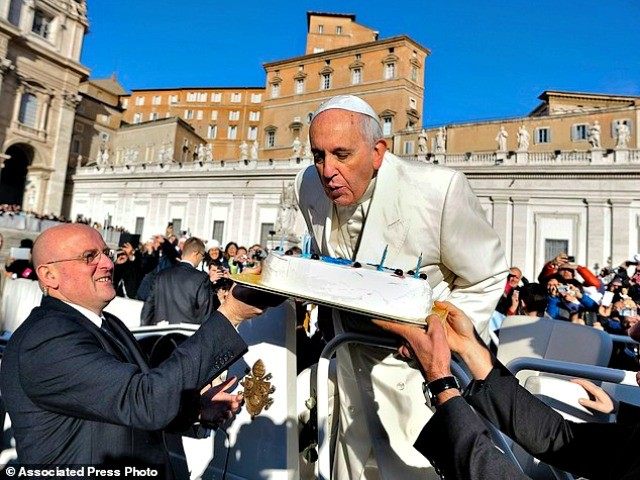With the Obama administration acknowledging the personal intervention of Pope Francis in the President’s unilateral decision to re-establish U.S. relations with Cuba, the United States Conference of Catholic Bishops (USCCB) is applauding the pope’s role in the effort.
The USCCB website has posted the statement of Bishop Oscar Cantú of Las Cruces, New Mexico, chairman of the bishops’ Committee on International Justice and Peace, who welcomes Obama’s announcement about the decision to re-establish diplomatic relations with Cuba, and the release of Cuban prisoner Alan Gross.
“Our Conference has long held that universal human rights will be strengthened through more engagement between the Cuban and American people,” Cantú wrote. “For decades, the USCCB has called for the restoration of diplomatic relations between our nations. We strongly support the review of Cuba’s designation as a State Sponsor of Terrorism.”
The statement continues:
We believe it is long past due that the United States establish full diplomatic relations with Cuba, withdraw all restrictions on travel to Cuba, rescind terrorist designations aimed at Cuba, encourage trade that will benefit both nations, lift restrictions on business and financial transactions, and facilitate cooperation in the areas of environmental protection, drug interdiction, human trafficking and scientific exchanges. Engagement is the path to support change in Cuba and to empower the Cuban people in their quest for democracy, human rights and religious liberty.
“Both President Obama and Raul Castro expressed appreciation to the role of Pope Francis in making possible what seems to be a real game changer in the historically strained relationship between Cuba and the United States,” said Archbishop Thomas Wenski of Miami in a statement on the archdiocese’s website. “Pope Francis did what popes are supposed to do: Build bridges and promote peace. He acted much like his namesake, Francis of Asissi [sic], who during the fifth crusade, went to Egypt to meet with the Sultan al Kamil in the interest of peace.”
“In comments that Raul Castro made, he seemed to indicate that his government was open to engage in conversations with the U.S. on issues related to democracy and human rights,” Wenski added.
According to the National Catholic Register, Stephen Colecchi, director of the bishops’ Office of International Justice and Peace, applauded Obama’s move as having a “fair amount of discretion” in areas such as travel and trade.
“Cuba does have a troubled record on human rights, and we have to acknowledge that. They are not a fully open society,” Colecchi added, however.
Comparing the situation in Eastern Europe and the former Soviet Union with that of Cuba, Colecchi observed that a policy of trade and diplomatic engagement “was very instrumental in fostering positive change” in these other regions in the past.
“We’ve been doing the embargo for decades now, and it has not had its desired effect,” he said. “So, now, a new strategy seems in order, and the Church is quite confident the strategy of engagement will bring far greater fruits in the long run.”

COMMENTS
Please let us know if you're having issues with commenting.